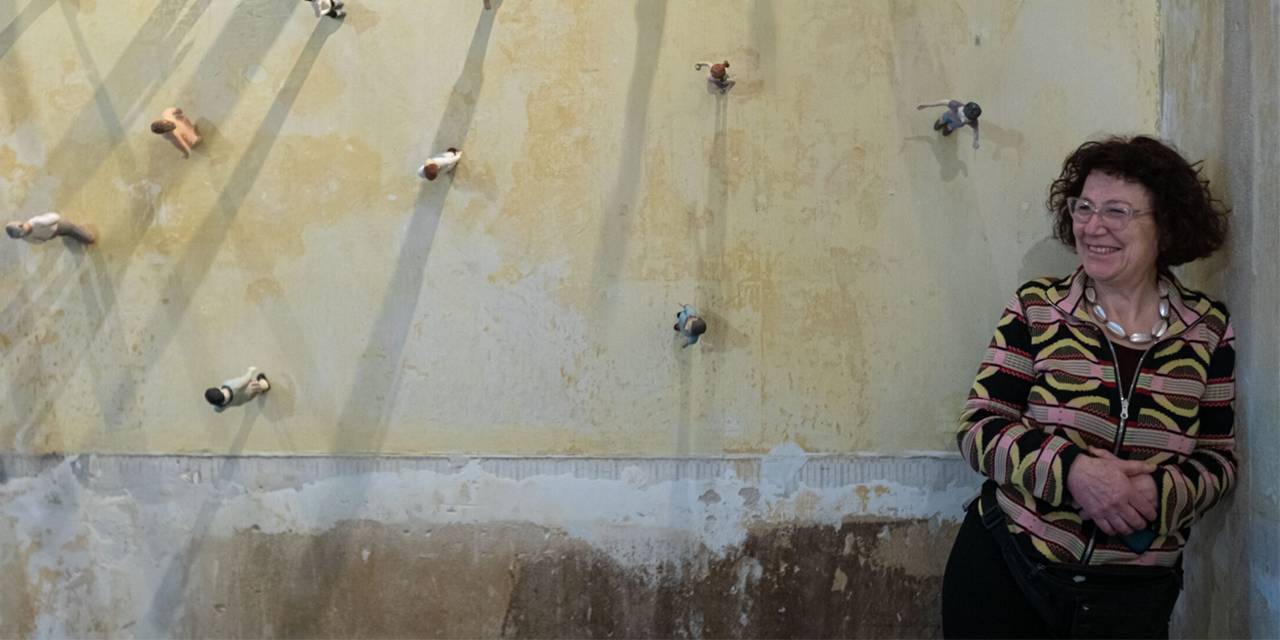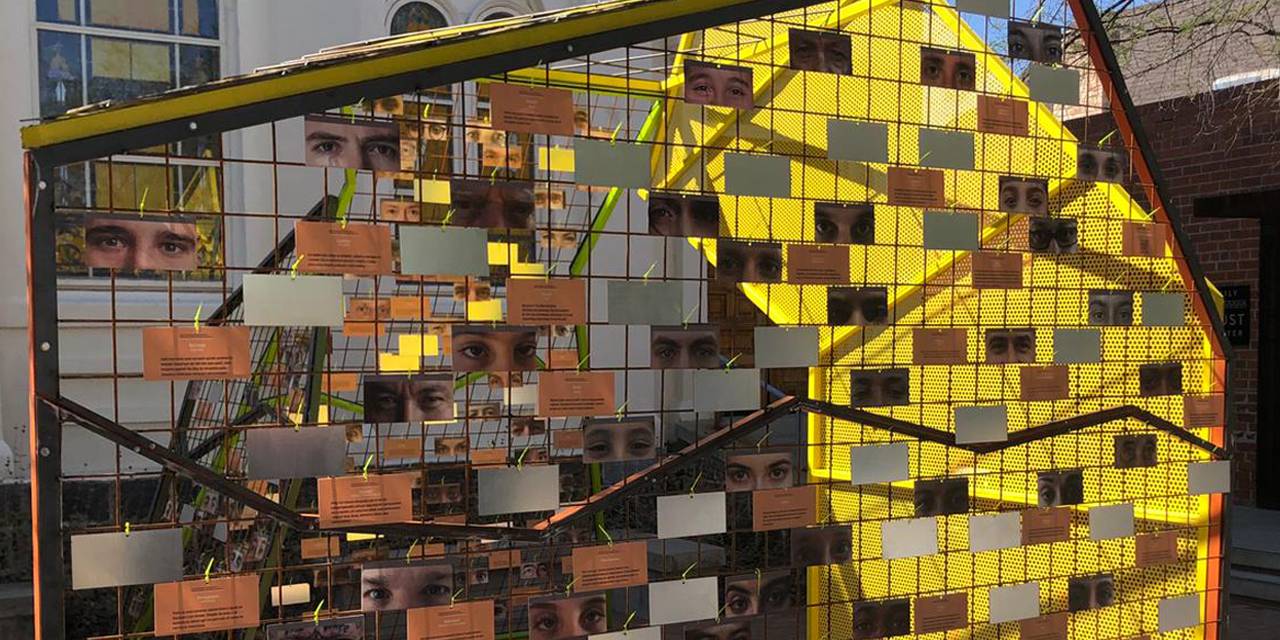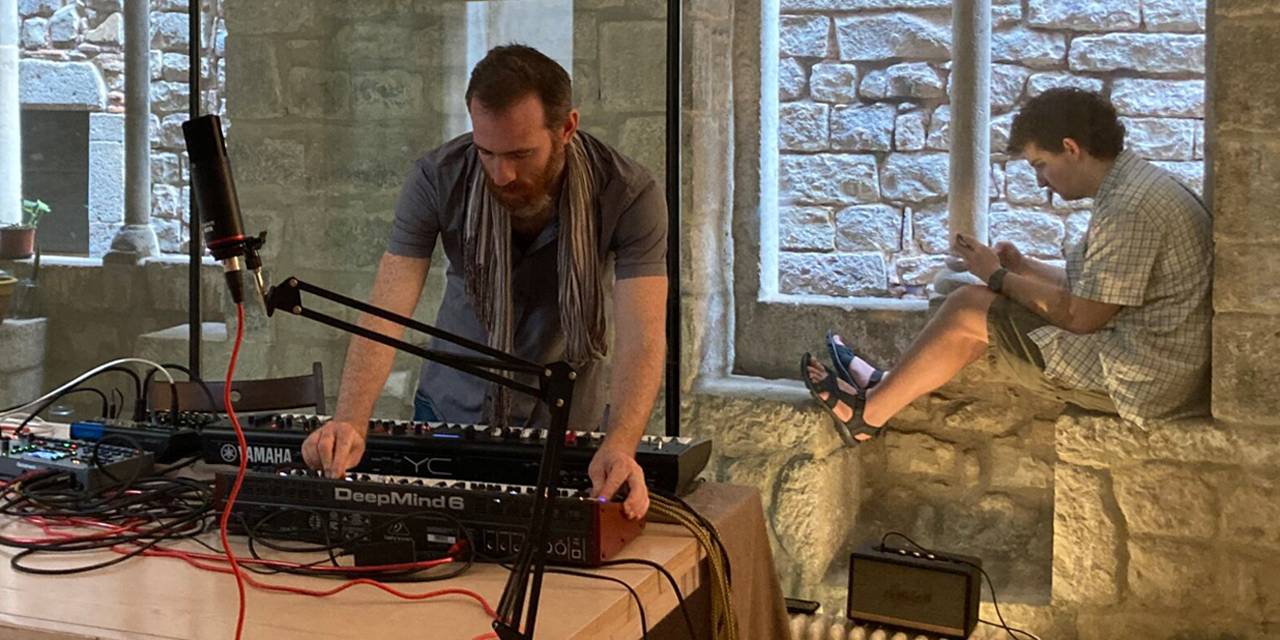New York
LABA Fellow Doron Perk leaps into his piece Grandfather Visit in October 2021Photo by Basil Rodericks

Berlin
Yoshvey Tevel by Rachel KohnSalon am Moritzplatz from November 6th-15th

Buenos Aires
"Clamor in the Desert," a sukkah by Mirta Kumpferminc.

Bay Area
"Eroding and Evolving–Tribal" by Hagit Cohen



